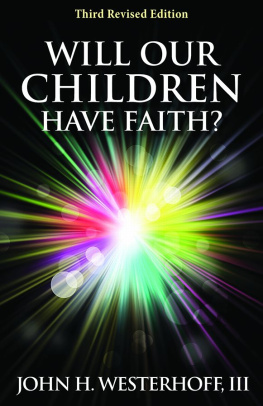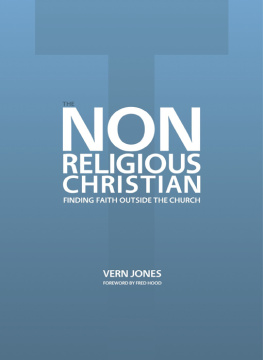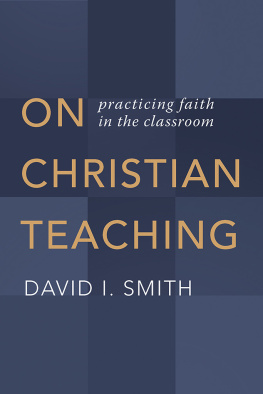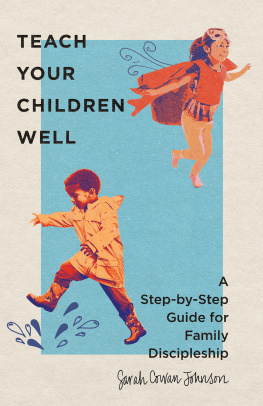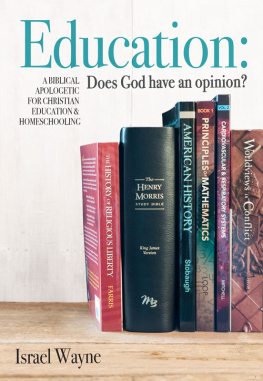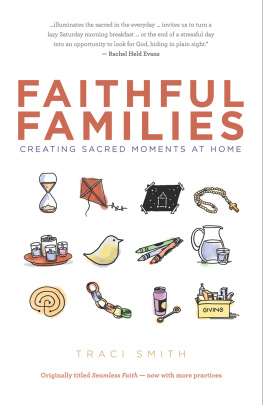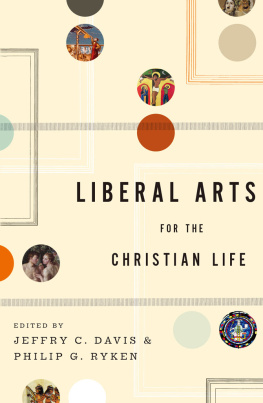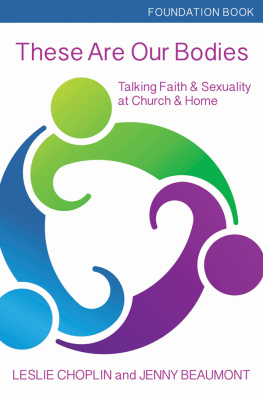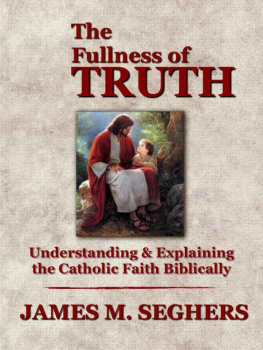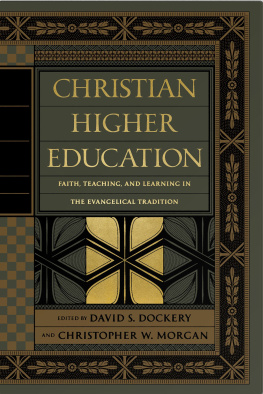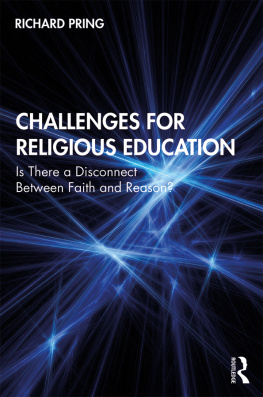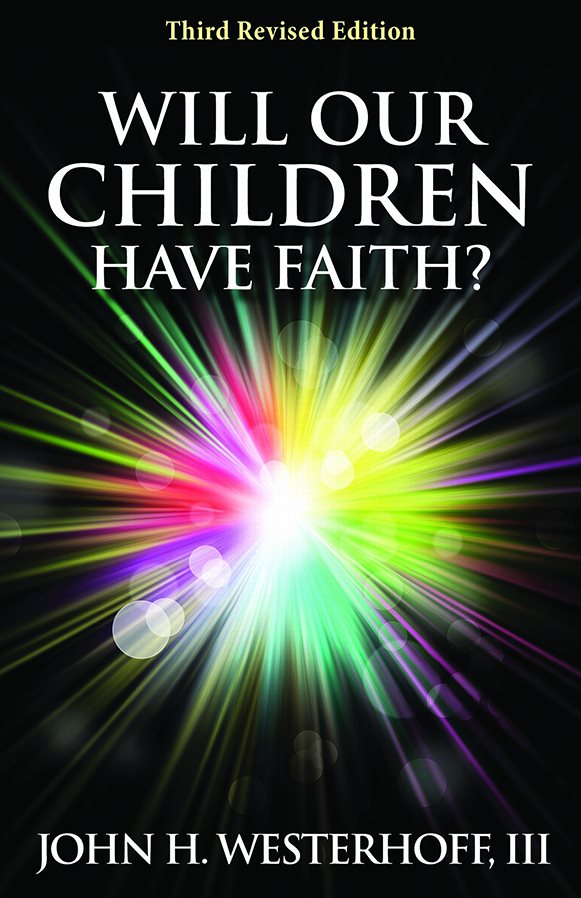Will Our Children
Have Faith?
Will Our Children
Have Faith?
John H. Westerhoff III
Third Revised Edition

First published in 1976 by Seabury Press.
Revised and expanded edition copyright 2000 by John H. Westerhoff III
Third Revised Edition copyright 2012 by John H. Westerhoff III
All rights reserved. No part of this book may be reproduced, stored in a retrieval system, or transmitted in any form or by any means, electronic or mechanical, including photocopying, recording, or otherwise, without the written permission of the publisher.
Unless otherwise noted, the Scripture quotations contained herein are from the New Revised Standard Version Bible, copyright 1989 by the Division of Christian Education of the National Council of Churches of Christ in the U.S.A. Used by permission. All rights reserved.
Morehouse Publishing, 4775 Linglestown Road, Harrisburg, PA 17112
Morehouse Publishing, 445 Fifth Avenue, New York, NY 10016
Morehouse Publishing is an imprint of Church Publishing
Incorporated.
www.churchpublishing.org
Cover design by Laurie Klein Westhafer
Typeset by Denise Hoff
A catalog record of this book is available from the Library of Congress.
ISBN-13: 978-0-8192-2800-0 (pbk.)
ISBN-13: 978-0-8192-2801-7 (ebook)
Dedicated
to
Caroline, my wife,
and
our children and grandchildren.
Contents
T o appreciate, understand, or make use of a books content, it helps to know something about both the author and the historical, social context in which it was written. In this new preface to Will Our Children Have Faith? I would like to share my story and my reading of the times in which I wrote it.
I was born on June 28, 1933, in Paterson, New Jersey. My maternal grandfather was a practicing Roman Catholic who died just before my mother was born. My grandmother, a Protestant by birth and an agnostic by conviction, brought my mother up to respect and appreciate every religion. Not being raised in a particular tradition, my mother accompanied her friends to Roman Catholic and Protestant churches as well as Jewish synagogues. My fathers mother and father were Dutch immigrants who had been born into the Reformed Church in the Netherlands but had no church affiliation in this country, so neither did my father. Nevertheless, four months after my birth I was baptized at the Presbyterian Church in which my parents had been married.
When I was three my mother took me, for about a year, to Sunday school in that same church. But the church was distant from where we lived and we stopped attending.
When I was eight, a neighbor offered to take me to her church, a nondenominational, fundamentalist congregation. Every Sunday evening I went with her to a revival meeting. I participated fully, and the assistant pastor took a liking to me. We would talk together after the service, and one day he came to visit my mother. He told her that he was sure that God had called me to be a minister of the Gospel and that she should encourage me to hold revival meetings in our garage for the children of our neighborhood. My mother was so upset by his visit that she refused to permit me to attend that church again. Shortly thereafter we moved.
By the time I was thirteen, I was able to make my own decisions about how I would spend Sunday mornings. One Sunday I wandered up the street from our home and entered a Community Church that, to my pleasure, I discovered was related to the Dutch Reformed Church. Soon I was befriended by the pastor, a learned man with a doctorate in Calvinist theology. I was convinced that there was only one truth and that my authority, the Bible (interpreted by the pastor, Dr. Vernon Oggell), had it. He too told me that I was destined to be a minister, encouraged me to take a leadership role in worship each week, and gave me my own Sunday school class to teach. He was my father in God, and I followed him around like his own son. What is important for me now is that I was not brought up in the church by believing parents. I was a convert whose beginnings were in the Reformed, Calvinist, evangelical, intellectual tradition, a tradition I still appreciate.
Following high school I attended Ursinus College in Collegeville, Pennsylvania, a college in the evangelical and Reformed (now United Church of Christ) tradition. Still committed to becoming a minister (my nickname was Preach), I went through a period of questioning and searching. I became convinced that there was no one truth, only the truth each person holds. I had my own truth, and I was committed to convincing conservative, evangelical Christians that theirs was wrong. I refused to attend the local church because I believed the pastor was ignorant and misinformed about Scripture. Instead, I organized my own congregation, led its worship, and taught a class for about twenty other questioning students at the college. In those days I was arrogant and self-righteous. I chose to have no connection to any institutionalized Christian tradition. But I prayed regularly and read every book on Scripture and theology I could find.
My next stop was the Harvard University Divinity School. All that I was sure of was that I was called to be an ordained minister in the church and needed to study theology. Importantly, during those three years I was formed as a Christian, a pastor, and a teacher in the church. For me, these remain the most significant and transforming years of my life.
My Harvard experience had two dimensions. The first was academic and was the consequence of friendships I formed with a number of the faculty: a Russian Orthodox priest and professor of church history, Georges Florovsky; a Roman Catholic historian, Christopher Dawson; a Lutheran New Testament professor and pastor, Krister Stendahl; a Lutheran professor, theologian, and pastor, Paul Tillich; a Unitarian ethicist and pastor, James Luther Adams; a United Church of Christ New Testament scholar, Amos Wilder; and an Anglican professor of Greek and Roman religion, Arthur Darby Noch.
These relationships influenced my life in numerous ways. Intellectually I came to the place where I was able to acknowledge various possible truths, and choose one that I could believe and advocate, while remaining open to others. I became convinced that truth is found when two opposite propositions are held in tension. Heresy occurs when one of the propositions is affirmed and the other denied. But more importantly I learned that there are two ways to think and know, the intellectual and the intuitive. And it is the intuitive, the pre-rational, nurtured and expressed through the arts, that is foundational to religious life. I also learned that people dont really learn unless they are passionately searching. This learning also requires that someone be willing to let his or her life be a resource to the searcher. Any truth that is revealed, is revealed to them both.
The second dimension of my life at Harvard was related to finding a Christian tradition in which I could be at home and be formed as a pastor and teacher. I needed a job to help pay my way through Harvard, and I was hired to direct the youth ministry of the First Congregational Church (United Church of Christ) in Needham, Massachusetts. Here a new father in God emerged. Herbert Smith, trained at Harvard as a lawyer, had a doctorate in divinity and was the pastor of this congregation. He became my dearest friend and mentor, the single most influential person in my life. He understood himself as the churchs teacher. His sermons were written lectures and his lectures read like sermons. He read and studied for four hours each morning. He never let an opportunity go by, whether in a formal or informal setting, to engage people in learning. He focused his efforts on adults, believing that they were the keys to a healthy educational ministry. Worship (he was a high church, Eucharist-every-Sunday Congregationalist) and nurture were the foundations of his ministry. He invited me to share in this ministry and then took the time to reflect with me each week on my experiences. In 1958 I was ordained in this congregation and accepted my first call.

